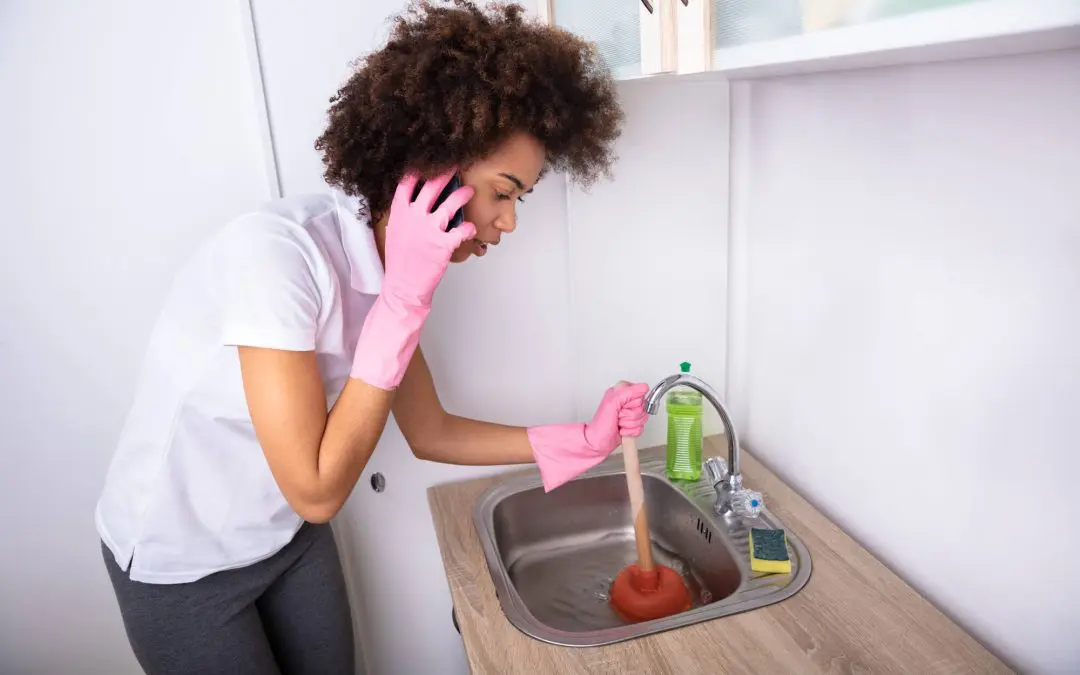Clogged drains are a common household problem that can be frustrating and inconvenient. While it may be tempting to call a plumber right away, many clogs can be easily resolved with a few simple steps. In this guide, we’ll show you how to unclog a drain using everyday tools and materials, saving you time and money.
Identify the Cause of the Clog
The first step in unclogging a drain is to determine what’s causing the blockage. Drains can become clogged for various reasons, such as a buildup of hair, soap scum, grease, or food particles. Identifying the cause will help you choose the most effective method for clearing the drain.
Gather the Necessary Tools to Unclog a Drain
Before you begin, make sure you have the right tools on hand. For most clogs, you’ll need a plunger, a drain snake or auger, and a pair of rubber gloves. If you suspect grease or soap buildup is the culprit, you may also want to have some baking soda, vinegar, and hot water ready.
Use a Plunger to Clear the Clog
A plunger is often the first tool you should try when dealing with a clogged drain. To use a plunger effectively, start by partially filling the sink or tub with water. This will help create a seal over the drain. Place the plunger over the drain and press down firmly to create suction. Then, pump the plunger up and down vigorously for about 20-30 seconds. The suction the plunger creates should help dislodge the clog and allow the water to flow freely again.
Try a Homemade Drain Cleaner to Unclog a Drain
If the plunger doesn’t work, use a homemade drain cleaner. This method is particularly effective for clogs caused by grease or soap scum. Start by pouring a cup of baking soda down the drain, followed by a cup of vinegar. The mixture will create a fizzing reaction that helps break down the clog. After letting the solution sit for about 15 minutes, flush the drain with boiling water. Repeat the process if necessary.
Use a Drain Snake for Stubborn Clogs
A drain snake or auger is your best bet for more stubborn clogs. A drain snake is a flexible tool that can reach deep into the drain to break up or remove the blockage. To use a drain snake, insert the end into the drain and push it down while turning the handle clockwise. As you push, the snake will work its way through the clog. Once you feel resistance, continue turning the handle to break up the clog. After clearing the clog, pull the snake out of the drain and run hot water to flush out any remaining debris.
Prevent Future Clogs
After successfully unclogging your drain, it’s important to take steps to prevent future clogs. Regularly clean your drains by pouring hot water down them once a week. You can also use a drain guard to catch hair, food particles, and other debris before they have a chance to cause a blockage. Additionally, avoid pouring grease or oil down the drain, as these substances can solidify and lead to clogs.
Know When to Call a Professional to Unclog a Drain
While most clogs can be resolved with the methods outlined above, there are times when you may need to call a plumber. If you’ve tried multiple methods and the drain is still clogged, or if you notice multiple drains in your home are backing up simultaneously, it could indicate a more serious issue with your plumbing system. In these cases, it’s best to seek professional help to avoid causing further damage.
Unclogging a drain doesn’t have to be expensive. With a little patience and the right tools, you can tackle most clogs on your own and avoid the expense of hiring a plumber. Remember to maintain your drains regularly to keep them running smoothly and prevent future clogs from forming.
FAQs
What are the most common causes of clogged drains?
Clogged drains typically result from the accumulation of hair, soap scum, grease, food particles, and foreign objects. In kitchen sinks, grease and food debris are frequent culprits, while bathroom drains often struggle with hair and personal care product buildup. Over time, these materials can combine and harden, creating stubborn blockages that impede water flow.
How often should I clean my drains to prevent clogs?
Regular maintenance can significantly reduce the likelihood of clogs. It’s advisable to clean your drains once a week by flushing them with hot water. Additionally, using a mixture of baking soda and vinegar monthly can help break down buildup and keep your pipes clear. Implementing these simple routines can extend the lifespan of your plumbing and prevent major blockages.
Can I use chemical drain cleaners instead of homemade solutions?
While chemical drain cleaners are available and can be effective for certain clogs, they come with risks. These chemicals can be harsh on your pipes, especially if used frequently, and may pose safety hazards if mishandled. Homemade solutions like baking soda and vinegar are safer alternatives that are environmentally friendly and less likely to damage your plumbing system.
What safety precautions should I take when unclogging a drain?
When unclogging a drain, always wear rubber gloves to protect your hands from debris and cleaning agents. If you’re using a drain snake, handle it carefully to avoid injury. Ensure the area is well-ventilated, especially if using any chemical or homemade cleaners. Also, avoid mixing different cleaning agents, which can create harmful fumes or reactions.
HomeVantage Home Inspections offers inspections to homebuyers and sellers in Northern New Jersey. Contact us to request our services.

